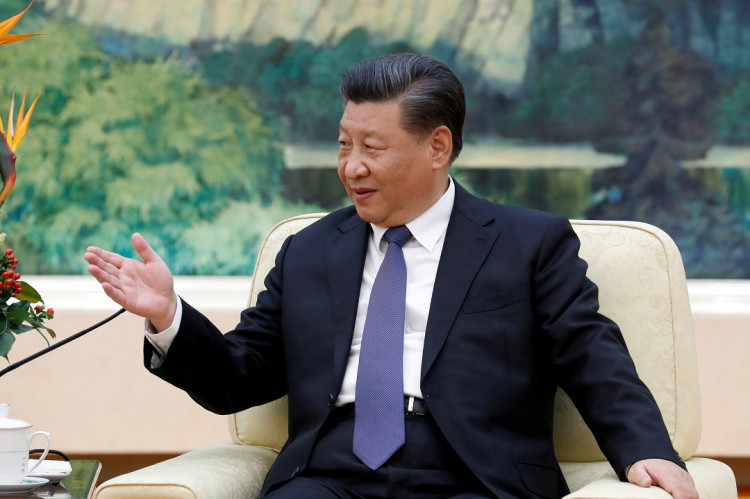Chinese President Xi Jinping emphasized the need for global cooperation amid escalating economic and diplomatic tensions. Speaking at a conference commemorating China's guiding principles for foreign affairs, Xi highlighted the importance of building "bridges" rather than walls, especially as Beijing grapples with disputes with several trading partners and neighboring countries.
Xi reiterated that China, the world's second-largest economy, would adhere to a path of peaceful development and would not seek to dominate other nations. Addressing an audience that included Myanmar's former president, Thein Sein, and Nong Duc Manh, the former general secretary of the Vietnamese Communist Party, Xi called for a renewed commitment to the Five Principles of Peaceful Coexistence, first established in a 1954 pact with India over their Himalayan border.
"Facing the history of peace or war, prosperity or unity or confrontation, more than ever before, we need to carry forward the spirit and connotation of the Five Principles of Peaceful Coexistence," Xi said. Despite these declarations, Indian officials were notably absent from the event, highlighting ongoing tensions between the two nations.
China's transformation since the 1950s has been profound. From being unrecognized by the United Nations, it now boasts the largest diplomatic footprint in the world and presides over an $18.6-trillion economy. Beijing's aim is to be seen as a diplomatic heavyweight, even as other nations accuse it of economic coercion and unfair competition.
Following China's unexpected mediation between Iran and Saudi Arabia last year, China's top diplomat, Wang Yi, asserted that the country would continue to play a constructive role in resolving global conflicts. However, China's reluctance to condemn Russia's invasion of Ukraine and its deepening ties with Moscow present significant challenges to its diplomatic ambitions. Recently, China skipped a peace summit in Switzerland, raising further questions about its global stance.
Trade tensions with the European Union are also mounting. The EU plans to impose additional tariffs on Chinese-made electric vehicles, accusing China of flooding the market with subsidized products. This move could open a new front in the tariff war that began with the U.S. in 2018. "In the era of economic globalization, what we need is not to create chasms of division, but to build bridges of communication," Xi stated.
China has shown a softer diplomatic approach recently, such as freeing an Australian journalist from prison and resuming informal nuclear talks with the U.S. However, regional tensions remain high. Relations with India have been strained since a deadly military clash on their disputed border in 2020. Tensions with the Philippines have also escalated over competing claims in the South China Sea, prompting the U.S. to reaffirm its defense commitments to Manila.
"The best case illustrating the success of the Five Principles is China's relations with the Association for South East Asian Nations," said Zhang Weiwei, a professor of international relations at Fudan University. However, he acknowledged that conflicts could easily flare up, emphasizing the need for dialogue.
Siddharth Chatterjee, the UN's resident coordinator for China, echoed this sentiment. "At the end of the day, we need a forum where people can talk, regardless of your size, your strength, your economic might, your military might," he told Reuters, noting the dangerous period the world has entered.
In a related speech, Xi called for the Global South to have a more significant role in international affairs, challenging U.S. influence. Developing nations should lead in promoting a "community with a shared future for mankind" and work together to maintain global stability, Xi said. This effort is part of Xi's broader campaign to reshape global governance and reduce what his diplomats refer to as "U.S. hegemony."
China's push to expand BRICS (Brazil, Russia, India, China, and South Africa) reflects this ambition. The bloc recently doubled in size, providing a political venue independent of Washington's influence. Nations such as Malaysia and Thailand have shown interest in joining, signaling frustration with the U.S.-led order.
Despite these efforts, China's aggressive diplomacy and territorial claims, particularly regarding Taiwan and the Philippines, have heightened regional tensions. Beijing's support for Russia amid the Ukraine conflict further complicates its relations with the West.






